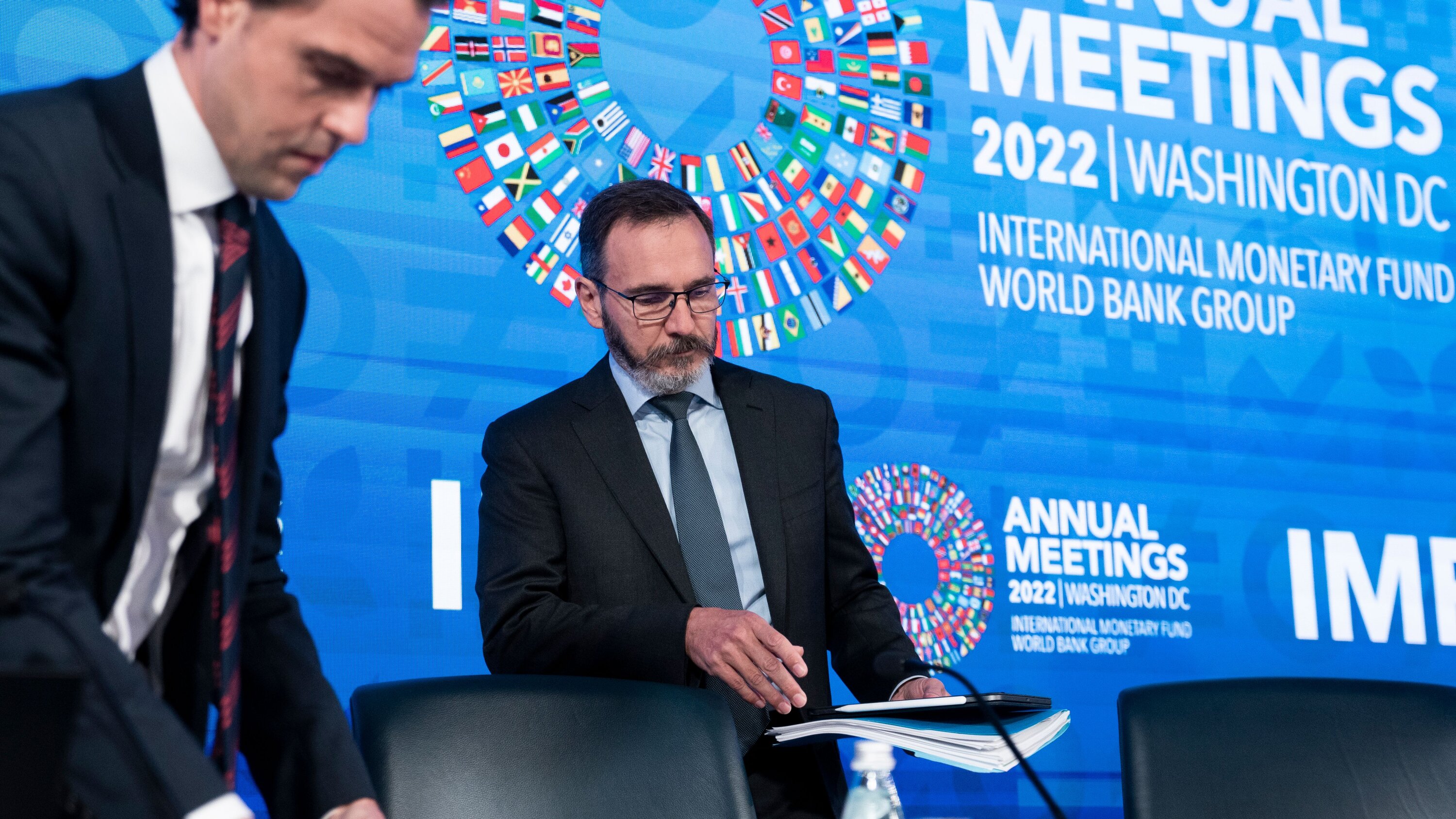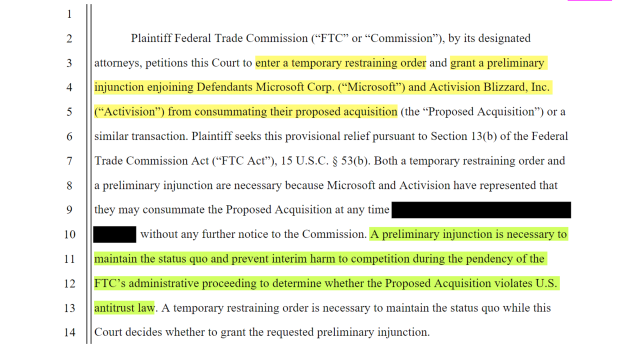Trump's Trade War: IMF Warns Of Systemic Financial Risk

Table of Contents
The Impact of Trump's Tariffs on Global Trade
Trump's trade war was characterized by the imposition of significant tariffs on various imported goods. These import tariffs targeted specific industries, most notably steel and aluminum, leading to retaliatory tariffs from major trading partners like China and the European Union. This tit-for-tat escalation created substantial trade barriers, disrupting established global supply chains and causing widespread economic ripple effects.
-
Targeted Industries: The tariffs affected numerous sectors, including steel, aluminum, automobiles, agricultural products, and technology.
-
Retaliatory Tariffs: China, the EU, and other countries responded with their own tariffs, creating a complex web of trade restrictions. These retaliatory tariffs often targeted American goods, further escalating tensions.
-
Disrupted Supply Chains: The imposition of tariffs led to significant disruptions in global supply chains. Businesses faced increased costs, delays, and uncertainty, forcing many to restructure their operations or seek alternative suppliers.
- Example 1: The automotive industry faced challenges due to tariffs on steel and aluminum, impacting production costs and vehicle prices.
- Example 2: Farmers experienced reduced exports to China due to retaliatory tariffs, leading to significant financial losses.
This disruption resulted in a decline in global trade volume and an increase in prices for consumers. Reports from the World Trade Organization (WTO) and the IMF documented a noticeable decrease in global trade growth during this period, highlighting the significant economic impact of the trade war.
IMF's Assessment of Systemic Financial Risk
The IMF expressed serious concerns about the potential for Trump's trade war to trigger a global financial crisis. Their assessment was based on sophisticated economic models and analysis of various economic indicators, focusing on the interconnectedness of global markets and the potential for cascading failures.
-
Methodology: The IMF used econometric models to simulate the potential impact of the trade war on various economic variables, including GDP growth, investment, and inflation.
-
Key Risks Highlighted by the IMF:
- Decreased Investment: Increased uncertainty caused by the trade war discouraged businesses from investing, hampering economic growth.
- Reduced Economic Growth: The trade war dampened global demand and reduced overall economic output.
- Increased Uncertainty: The unpredictable nature of the trade disputes created significant uncertainty, making it difficult for businesses to plan for the future.
- Financial Instability: The potential for widespread defaults and bankruptcies due to increased costs and reduced profitability posed a significant threat to financial stability.
The IMF's reports and statements consistently warned of the severity of these risks, emphasizing the need for swift action to mitigate the potential for a global recession.
Sectors Most Vulnerable to Trump's Trade War
Certain sectors were disproportionately affected by the trade war due to their reliance on international trade and their exposure to specific tariffs.
- Agriculture: The agricultural sector, particularly in countries like the US, faced significant challenges due to retaliatory tariffs imposed by China and other trading partners.
- Manufacturing: Manufacturing industries heavily reliant on imported inputs or exporting finished goods were particularly vulnerable to tariff increases and supply chain disruptions.
- Technology: The technology sector, with its complex global supply chains and reliance on international collaborations, experienced increased costs and uncertainty.
Examples include American soybean farmers suffering from reduced exports to China and manufacturers facing higher input costs due to tariffs on steel and aluminum. These vulnerabilities highlight the interconnected nature of the global economy and the cascading effects of protectionist policies.
Potential Mitigation Strategies and IMF Recommendations
The IMF recommended a series of measures to mitigate the risks associated with the trade war, emphasizing the importance of international cooperation and proactive policy responses.
- De-escalation of Trade Tensions: The IMF advocated for a negotiated settlement to reduce trade barriers and restore predictability to international trade.
- Strengthening Global Cooperation: The IMF stressed the importance of international collaboration among governments and organizations to address shared economic challenges.
- Targeted Policy Interventions: Governments were encouraged to adopt targeted policies to support affected industries and mitigate the negative economic consequences.
The IMF’s recommendations underscored the need for a multilateral approach, emphasizing that addressing the challenges posed by the Trump trade war required concerted efforts from various stakeholders. International cooperation and a commitment to open trade were presented as crucial elements in navigating the complexities of global commerce and mitigating systemic risk.
Conclusion: Understanding and Addressing the Risks of Trump's Trade War
The IMF's warnings about the systemic financial risk posed by Trump's trade war were not unfounded. The imposition of tariffs, retaliatory measures, and the resulting disruptions to global supply chains had a profound impact on the global economy. Vulnerable sectors like agriculture, manufacturing, and technology faced considerable challenges. The IMF's recommendations for de-escalation, international cooperation, and targeted policy interventions remain relevant in navigating similar future trade disputes. Stay informed about the latest developments in the Trump trade war and the ongoing systemic financial risk assessments by the IMF to understand the potential impact on your investments and the global economy.

Featured Posts
-
 Jeff Bezos Blue Origin A Bigger Flop Than Katy Perrys Super Bowl
Apr 23, 2025
Jeff Bezos Blue Origin A Bigger Flop Than Katy Perrys Super Bowl
Apr 23, 2025 -
 Car Dealers Intensify Fight Against Ev Sales Mandates
Apr 23, 2025
Car Dealers Intensify Fight Against Ev Sales Mandates
Apr 23, 2025 -
 Ftc To Appeal Microsoft Activision Merger Ruling
Apr 23, 2025
Ftc To Appeal Microsoft Activision Merger Ruling
Apr 23, 2025 -
 77 Inch Lg C3 Oled Is It Worth The Hype
Apr 23, 2025
77 Inch Lg C3 Oled Is It Worth The Hype
Apr 23, 2025 -
 Nine Home Runs Power Yankees Opening Day Win Aaron Judges Historic Night
Apr 23, 2025
Nine Home Runs Power Yankees Opening Day Win Aaron Judges Historic Night
Apr 23, 2025
